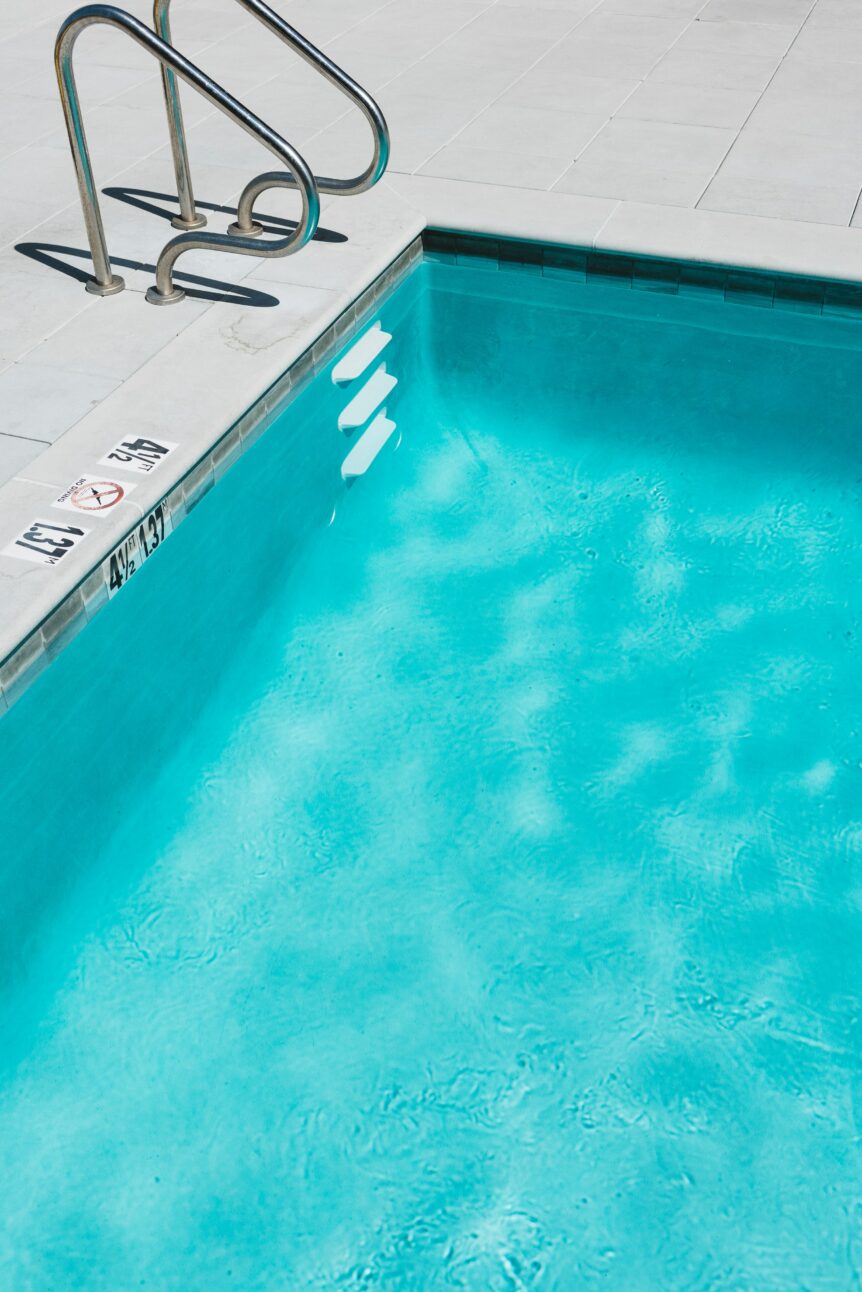For those that own a swimming pool, the arrival of summer can bring great excitement as you get ready to start using your pool again. However, owning and operating a swimming pool is not without a few areas of concern. In this article, we will break down the issues you should be aware of, including how swimming pool ownership impacts your insurance.
Massachusetts Law For Swimming Pools
In Massachusetts, whether you own a pool, either as an individual, corporation, or perhaps part of a club or association, or if you manage a pool open to the public or semi-open to the public – you are responsible for knowing the regulations and laws regarding pool safety.
Finding laws or regulations that govern safety issues for pools in Massachusetts can be difficult. The Commonwealth of Massachusetts adopted the 2009 International Building Code, which governs swimming pool enclosures and security devices. Here are several codes and regulations often overlooked by pool owners. For a complete rundown of all rules and regulations concerning swimming pool ownership in Massachusetts, please refer to Mass.gov linked here.
Codes and Regulations
- Massachusetts law states that residential pool owners must have a barrier covering their pool when not in use. The barrier should not have openings in it that would allow the passage of a 4-inch diameter sphere. The pool should also have self-closing gates. This rule makes sense insofar as the pool needs to clearly be protected and made safe. After all, when you are not at home, you want to be confident that your pool is being protected against mishaps.
- In regards to public and semi-public pools, Massachusetts has rules for those too. Both public and semi-public swimming pools, such as those found in apartment complexes, country clubs, schools, etc. Chapter 140, Section 206, of the state’s General Laws, requires a 6-foot tall fence to enclose the pool and that gates be self-latching with latches four feet from the ground. A life ring and a rescue hook must be present in any pool location. Outdoor pools must be drained and covered within seven days of closing.
- Public and semi-public in-ground swimming pools must also be inspected annually by the city’s building inspector. The owner of a pool that is found to be violating the rules set forth by the state can be fined up to a thousand dollars per violation.
- We recommend reviewing the most recent code and regulations in your location as they are subject to change.
Swimming Pools & Homeowners Insurance
Adding a swimming pool to your home or purchasing a home that has a swimming pool already installed will require you to review your homeowner’s insurance policy. While many homeowners’ policies do provide coverage for pools, they are not all created equally, and it is necessary that you review your coverage.
One key aspect to understand is the difference between liability coverage and property coverage for your pool, as they have different functions. Liability can help protect you, as the homeowner, against liability suits that arise from a pool-related accident. Meanwhile, property coverage for your pool deals specifically with the structure of the pool and any physical damage that may be incurred. Both are very important and should be reviewed by your insurance agent.
Additional Coverage For Swimming Pool Ownership
Many homeowners who own a pool often consider adding an additional Umbrella Policy to provide additional coverage. Umbrella policies are designed to cover and protect you from large and devastating claims. Once your underlying limits of the homeowner’s policy are reached, the Umbrella kicks in. You can learn more about Umbrella Policies here in our article breaking down The Importance of Umbrella Policies.
Swimming Pool Liability
An essential piece to be aware of is that failing to comply with pool regulations could leave individuals or companies who own them responsible if an accident occurs, not to mention facing some hefty fines. The Trial Court also advises that pool owners check with their specific cities for local laws about swimming pool responsibilities to ensure that they’re in compliance with those.
Pool incidents happen in an instant. Each year in the United States, there are close to 7,000 non-fatal swimming pool accidents. Don’t wait until there is an accident on or near your pool property to find out what your responsibilities are. Know the laws and regulations and review your safety procedures to make sure you’ve done all you can to prevent a serious situation.
Each year in the United States, there are close to 7,000 non-fatal swimming pool accidents.
Frequently Asked Questions About Swimming Pools
- Where do I buy swimming pool insurance?
A common misconception is that swimming pools require a separate insurance policy for homeowners. This is not the case. Whether you are considering adding a swimming pool to your home or purchasing a home with a swimming pool, coverage of the pool falls under your Homeowner’s Insurance Policy.
- Does a pool add to the cost of Homeowners Insurance?
The short answer is, yes. Homes that have a swimming pool can expect to pay a higher rate for their homeowner’s insurance. The added liability that the pool creates for the homeowner typically has a direct impact on the cost of their homeowner’s insurance. Swimming pools, in the insurance industry, are often referred to as attractive nuisances because of their impact on the cost of a homeowner’s insurance policy.
- How much Liability Insurance do I need for a pool?
Because owning a pool increases the liability risk of your home and property, a homeowner can expect to see an increase in their rates. An insurance company may request an increase of liability insurance of up to $500,000.
- How much does it cost to insure a pool?
As discussed above, one can expect their insurance provider to require an increase in liability coverage with the addition of a pool to the policy. It would not be uncommon to see an increase in liability insurance of up to $500,000. However, while this increase in liability coverage is steep, the increase in your monthly/annual premium should not be too dramatic.
- Do I need to insure an inflatable pool?
Sales of inflatable, above-ground pools have recently skyrocketed, no doubt another covid related buying trend. While these pools are not permanent in nature, they are still considered in the same light as permanent pools and therefore have the same insurance concerns. Notably, while inflatable pools are temporary structures, they still need to abide by Massachusetts laws for protecting the pool on your property, i.e., fences and barriers.
Deland, Gibson Insurance: Providing Peace of Mind Through Proactive Service
Deland, Gibson: A Trusted Choice, Five Star Accredited independent insurance agency. Established in Massachusetts in 1900, Deland, Gibson is a 4th generation family-run insurance agency that has thrived working as a trusted advisor for its client base. We work with individuals and businesses to lower their Total Cost of Risk. We analyze a client’s direct and indirect costs and implement risk reduction plans to address areas of business, hazard, or strategic risk.



